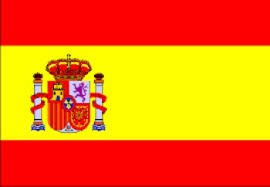About us
The Postgraduate Program in Food Science (PPC) at the State University of Maringá (UEM) was created in 2010, within the Agricultural Sciences Center (CCA), with the aim of filling an institutional and regional gap in advanced training in Food Science. At the time, UEM already had several undergraduate courses in the area (Food Engineering, Food Technology, Agronomy, Animal Science), as well as consolidated postgraduate programs in Agronomy, Animal Science, Chemical Engineering and Biology. However, there was no stricto sensu program specifically aimed at training professionals to work throughout the food production and processing chain, integrating the various links and knowledge in the sector.
The creation of the PPC-UEM was strategically based on three main pillars: (1) the vocation of the northwestern region of Paraná, where UEM is located, as an agro-industrial and agri-food hub of national relevance; (2) the university's recognized capacity to train professionals of excellence in all areas of the food production chain; and (3) the scarcity of postgraduate programs in the area, and at the time only the State University of Londrina (UEL) had a similar course in the north of the state.
Since its initial recommendation by CAPES with a 4 for Master's and Doctorate, the PPC has shown rapid progress, reaching a 5 in the 2013-2016 quadrennium. However, based on solid strategic planning, aligned with UEM's Institutional Development Plan (PDI) and CAPES guidelines, the program seeks to once again consolidate itself as a center of excellence in human resources training, impactful scientific production and technological innovation.
Over the years, the PPC has consolidated a robust and up-to-date curricular structure, with subjects integrated into the lines of research and projects developed. In 2021, the lines of research were reorganized, with a single area of concentration - Food Science - remaining and being structured into four lines:
Biochemistry and Biotechnology in Food;
Extraction, Characterization and Application of Bioactive Compounds in Food;
Microbiology and Food Safety;
Quality and Innovation in the Processing of Animal, Vegetable and Waste Derivatives.
This reformulation has strengthened the interdisciplinary nature of the program, which brings together teachers with backgrounds in Biochemistry, Pharmacy, Nutrition, Food Engineering, Chemistry, Agronomy and Zootechnics, reflecting the cross-cutting nature of the Food Science area and expanding its capacity to act on innovative fronts such as functional foods, sustainability and waste biotechnology.
By the end of 2024, the PPC-UEM had graduated 146 masters and 119 doctors, with an annual average of 11 masters and 9 doctors graduated since its creation. In the four-year period 2021-2024, the program's scientific output totaled 460 scientific articles published in journals, 69% of which were in journals classified in the A1 to A4 strata of Qualis-CAPES. The program also produced
-67 book chapters,
-2 books,
-50 abstracts for conferences,
-2 patents filed,
-2 patents granted;
15 interviews or technical lectures, and several courses and extension events with strong student participation.
The teaching staff has a high level of qualification: 82.4% of the permanent teaching staff have CNPq research productivity grants (levels 1, 2 or senior). The average H-index of permanent teaching staff, according to Scopus, was 22.4 over the four-year period.
The graduates of the PPC have a prominent role in universities, research centers, government agencies, food industries and technology-based startups. According to a survey of graduates between 2016 and 2024:
95% are employed or working on a post-doctorate;
20.9% work in academia;
33.8% in private institutions in the productive sector;
28.4% are self-employed or entrepreneurs;
2% work in institutions abroad.
In addition, projects such as the freeze-drying of human milk and the genetic improvement of tilapia, coordinated by professors from the program, demonstrate the direct impact of the PPC on public health and the national production sector, with results recognized by institutions such as SUS, Embrapa and the Paraná State Government.


